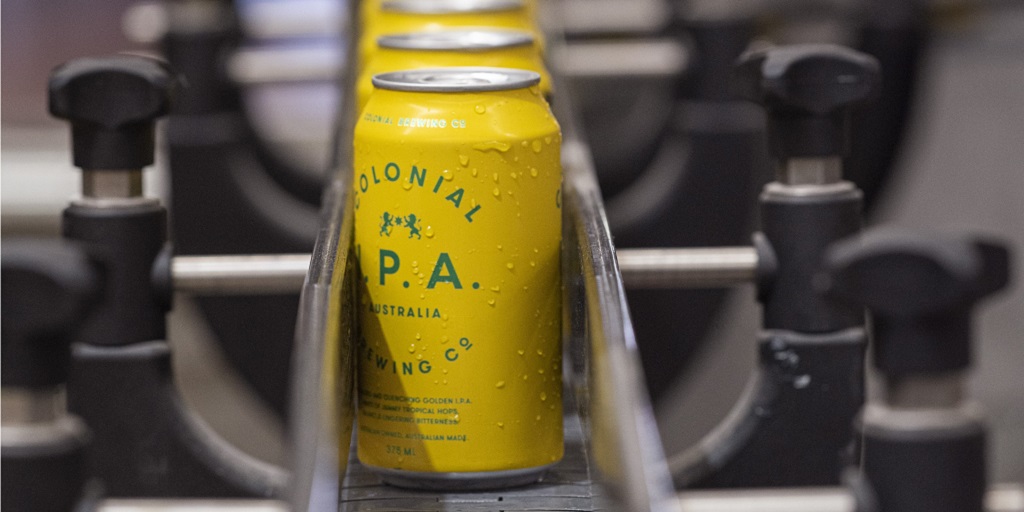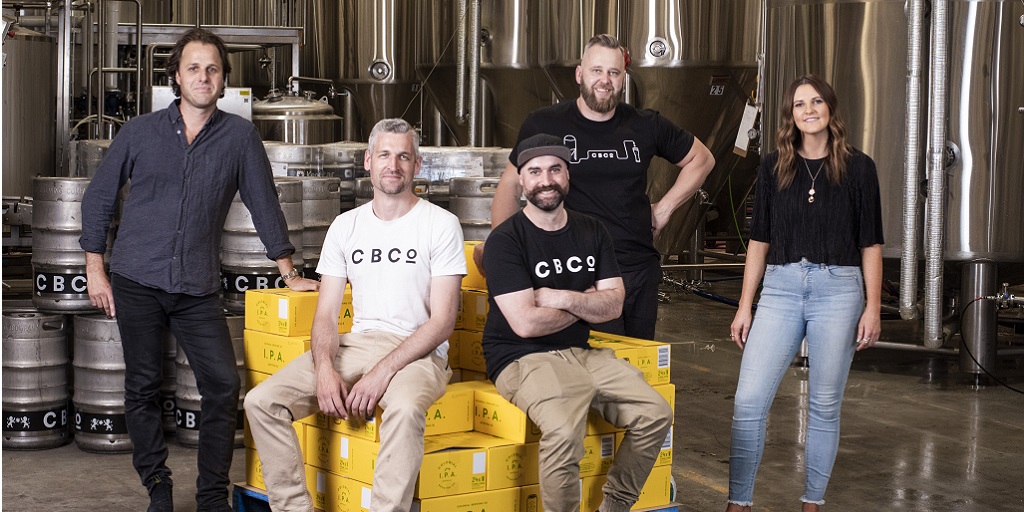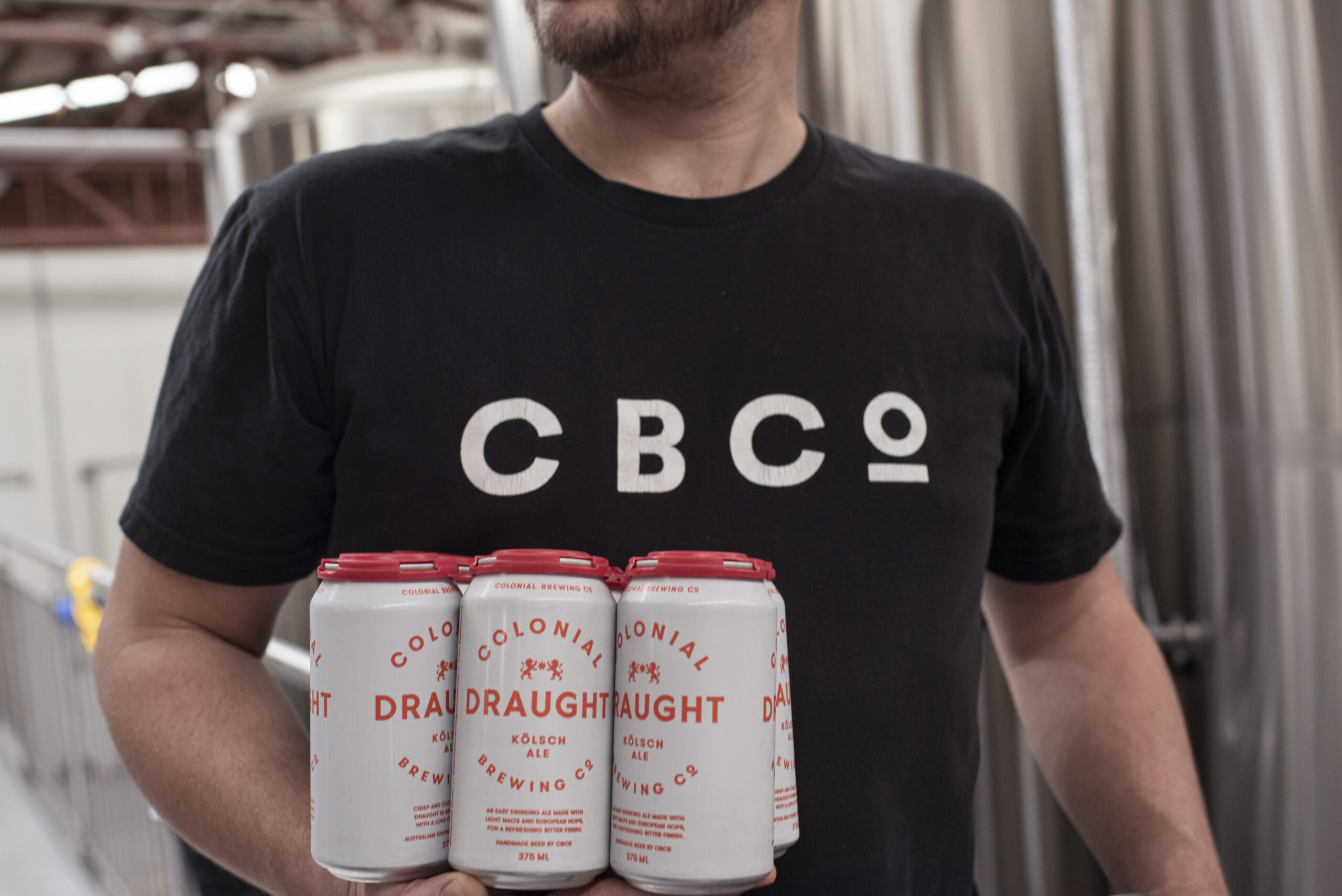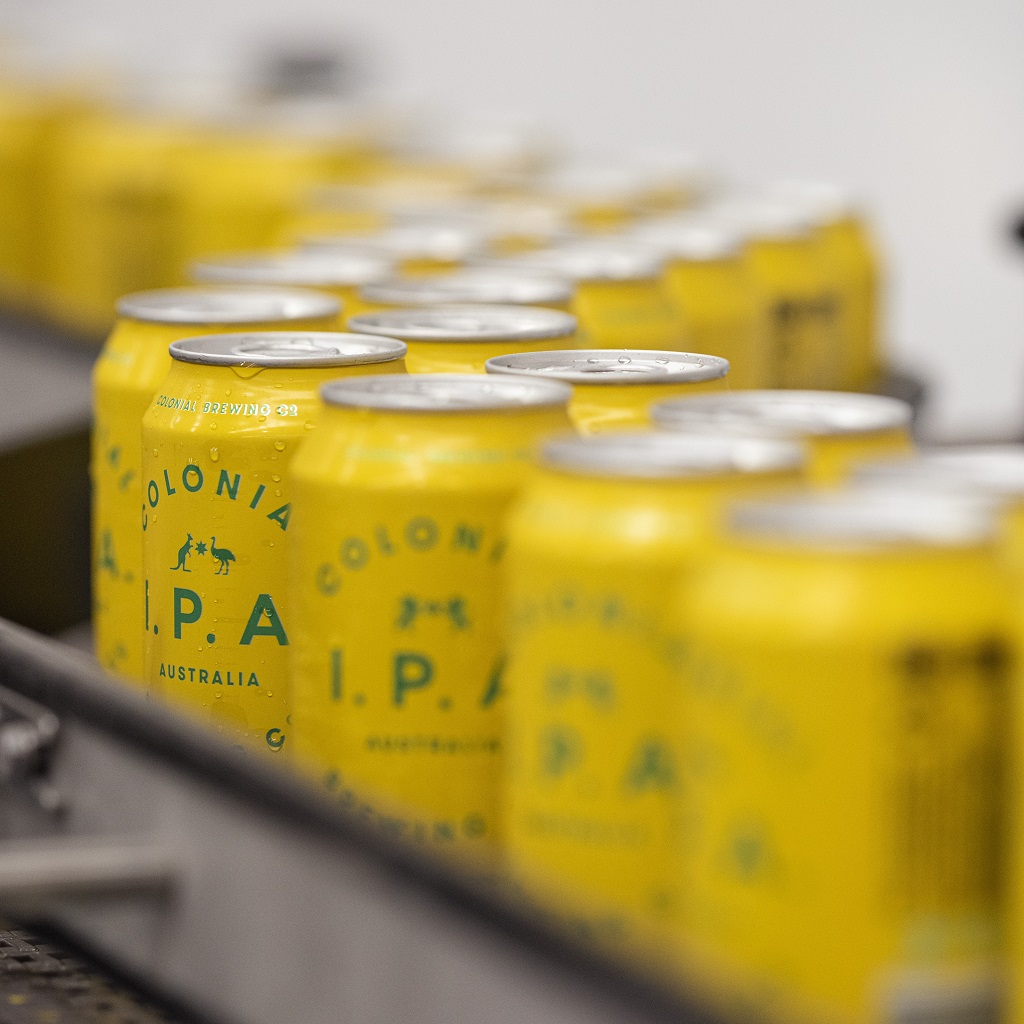
Colonial Brewing Co aims for 8 million litres with upgrade

Colonial Brewing Co is nearing completion on a brewery expansion at its Port Melbourne site which will see production capabilities rise to 8 million litres a year.
Its new BrauKon brewkit has been installed and the brewery will receive tanks and fermenters in the new year which which will allow it to achieve its ambitious capacity goals in the next six months.
Both its Port Melbourne and Margaret River breweries received upgrades, funded by reinvesting profits from the business, which has seen 50 per cent growth year on year since 2017 and will reportedly deliver 40 per cent revenue growth this year after the $3.5 million upgrade.
“We were pretty much able to commission the new brewhouse and canning line by September. It was a huge project…and they were done in conjunction with one another,” explained Lawrence Dowd, managing director of Colonial.
“There’s a lot of planning and preparation that goes into planning out a brewery and when you’re looking to increase capacity, you’ve got to look at it and get the most out of the site.
“We’re just trying to brew as much beer as consistently as possible so we’re meeting all of our orders and then we’ll look at those other expansions in the new year.”
Head of brewing Ash Hazell, who joined the business in 2017, taking over from a number of well-known brewers, said it has been a “hectic time” for the brewing team, as it oversaw the 50hL brewhouse installation that Colonial has had planned for a couple of years.
“It’s already running at full speed and it’s almost not big enough, but we’ll be able to get a bit more out of it,” he said.
Hazell explained that part of the reason for the upgrade was to enable greater flexibility in Colonial’s brewing schedules.
“We’ve struggled in the past to brew our project beers, because the capacity of our old brewhouse, it was running round the clock just to keep up with our core beers.
“So part of the idea of the new brewhouse was to up fermentation capacity so we’ve got a bit of breathing room in the brewing schedule to brew unique beer styles like our Hazy, which we just released. We had to brew less at a time because of the high component of wheat and oats in that beer.
“The new brewhouse means we’ve got that ability to brew full-size project beers with a bit more ease and the capability we have with the new brewhouse, we’ve gone from good brewing equipment to now world-class brewing equipment.
“I designed it myself to be able to do anything I foresee we would want to do,” he said.
The brewery
Hazell explained that pinning down the capacity of the newly installed brewhouse was difficult.
“Capacity is hard, we don’t know exactly, but I have a gut feel about what we can brew, and it’s somewhere around the 8 million mark. That’s probably changed twice between each press release as we find better ways to do things.”
Indeed when the plans for the upgrade were announced last year the team estimated 6 million litres of capacity.
“It’s a 50hL brewhouse, if it was mashing in every three hours we could probably make 12 million litres a year in theory,” Hazell said.
“Our fermentation space is currently somewhere between 4 and 5 million, depending on the split because draught sits in tank for a few weeks, those things affect overall capacity.”
He explained that even though the bulk of the work on the upgrade had been completed, there was still work to do to get the brewery running at optimum capacity.
“Even though we’ve finished these massive upgrades we’re still going through our refrigeration system,electricity for the site, CO2 tanks, packaging speed, the amount of fermenters we can fit in – we’re always finding new creative spaces to squeeze in.”
Even though the site is located in a former CUB brewhouse, like many breweries, Colonial is still hungry for space.
“They never really fully utilised it. We’re essentially pushing it to its limits. I think it’s five times bigger than they ever got it to, we’re running into issues as a result, but every problem has a solution.
“We do have four walls around us so we don’t have expansion space, it’s like a big game of Tetris to fit all the equipment in in the most efficient way.”
The Port Melbourne site is supplemented by Colonial’s original brewery in the Margaret River region of Western Australia, which Hazell explained was more of a “seasonal brewery” due to the difficulty in getting utilities and resources out there.
“We need to truck in water and gas there, we’ve got all these issues you have in a rural area, and capacity is impossible to predict.”
Despite the exponential growth which has led to the upgrades, Colonial was not planning to bring in processes that bigger brewers engage in, such as pasteurising, except flash pasteurising its cider products.
“To me, pasteurising isn’t something you build into your process, it’s basically a backup plan. If you don’t trust your process, you pasteurise to make sure you catch anything that could go wrong,” Hazell explained.
“My philosophy is get it right the first time and minimise those risks and be ready to deal with it if there are issues, and touch wood we haven’t had any yet.”
“Our beer is generally really fresh anyway so these aren’t really issues for us. With every batch we’ll taste it at three months old, and shelf life and now we’ve got really good quality equipment, we’re finding that our beer tastes palatable at it’s best before date, and is still fresh after 3 months. We’re really happy with that.”
Futureproofing
‘Futureproofing’ is becoming a major issue for brewers, many of whom would not have the resources to invest in a huge brewkit to start with.
But Dowd said this growth period was an essential phase for any brewery, and jumping straight in with an oversized kit took away this right of passage.
“There’s a lot of things that take time to build. Some people are very fortunate and build them quicker. For us it’s been a long path, but I’m confident we’ve got a good history and heritage for the brand, it just takes time,” he said.
“You’ve got to go through some of the critical stages, some of the milestones of the business as it goes along. To race to the end and build a massive brewery and think your demand will follow quickly is very hard to do, I don’t think anyone’s done that properly.”

He said the growth of Colonial, which is owned by Chris Morris of stock transfer business Computershare, could be put down to all of the “main pillars” of the business working cohesively.
“Your marketing has to be good, sales have to be good and it needs to be really strategically done.
“The brewing, you’ve got to make sure your liquid is good and its sessionable, and it’s something people can drink more than just one of.
“Logistics is really key and then the overall culture in the company, if everyone is doing their job and they’re passionate about it and every department [is] working really well with each of the others, and everyone’s rooting for everyone, then success will come.”
He said that if one of these things was off, then the others would fall too.
“You can have a great beer but if your marketing isn’t right then no one is going to connect with it. If your marketing is great but your liquid isn’t good, then people are going to say this is great but I’m not going to buy your beer.
“Everything needs to be working at an optimum level,” Dowd said.
Colonial’s wholesale model has clearly worked for them, and the question of moving towards a brewpub model is not yet being entertained by the team.
“Brewpubs are very on-trend at the moment, and I don’t think that’s going to go away,” Dowd said.
“People really engage with the brand when they see the people brewing it, that’s genuine.
“It’s following some of the trends in America where that sort of thing is popular, and there are some cracking brewpubs around right now, like Bodriggy which is really cool.
“We’ve got some plans for our brewery in Port Melbourne, we’ve opened it up and it’s about getting people down, connecting with what you’re doing and talking about what you’re brewing and understanding the process – that connection is invaluable.”
Dowd said that as Margaret River is Colonial’s “spiritual home” and the focus on their homebase as the site of the Colonial Brewing experience.
“For us it’s important [to have that kind of presence] in WA. Lots of people in the south west have had an experience at the brewery and that connection and provenance is important to us.
“We do play a little bit in the brewpub space, but that’s not our main account, we’re sold through all the independent bottle shops and that’s what’s got us where we are today.
“We’ve got a lot of space in the independent and major banner brands, the bottle shops are making good margins of craft beer so it’s a win-win,” he said.
Even though the market has become a lot more crowded than when Colonial was founded in 2004 by Ross Smith and brewer Steve Plowman, Dowd was optimistic.
“There’s still room for growth. It’s about ensuring people are educated about the beer they’re drinking, so the more that that happens, the more people will seek out different breweries, brands and styles, and for us that’s important.
“It’s like what wine went through. People became more aware of the wine they were drinking and wanted to find out about it, researched the brand and the offering more, and that’s what is happening with beer now, people are very interested in the background of brewing, there’s a lot of opportunity to talk about what we do.
“People are being more discerning about their beer, and the drink less but drink better, with a focus on quality beer. “
But while the outlook might be bright, that’s not to say it will be an easy ride, for the industry or individual breweries.
“There will be a point where there will be some consolidation and some people will find it difficult to maintain their current business model, it is very tough,” Dowd said.
“We’ve got to the stage where we can stay in and grow the business, but that wasn’t always the case, there were times we lost money and we definitely questioned ourselves, what are we doing this for, where are we going to be.
“I think you’ve got to make sure that you’re consistent and don’t try and chop and change too much. You’ve got to persist.”





